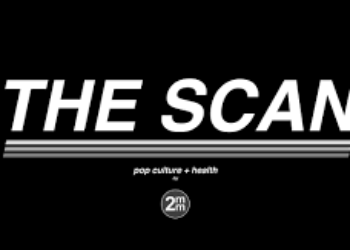Children with autism have more sleep problems
1. A case-control study comparing parent-reported sleep problems demonstrated increased odds for sleep problems among children with ASD compared to children in the general population.
2. Children with ASD also had higher mean parent-reported sleep problem scores and increased odds for sleep problems compared to children with other developmental delays/disorders (DD) but without ASD.
Evidence Rating Level: 2 (Good)
Study Rundown: Sleep problems are more frequently reported in children with developmental disorders, such as ASD, compared to children with typical development. Previous studies in this area lack comparison groups and have been limited by small clinic-based samples that oversample children with severe symptoms. In this case-control study, researchers compared questionnaire data on parent-reported sleep problems among children with ASD, other DD with ASD, other DD without ASD, and children in the general population recruited from multiple settings and states. Children with ASD were found to have increased odds for sleep problems when compared to children with other DD without ASD and children in the general population.
These findings are limited by potential bias in parent-reported questionnaires and the lack of objective measures of sleep. Furthermore, the questionnaire and scale used cannot make a clinical sleep disorder diagnosis and measures frequency rather than severity of sleep problems. Nonetheless, the study is strengthened by its large, nationally representative sample and multiple comparison groups. For physicians, these findings highlight the importance of asking parents of children with ASD about sleep problems in order to enact early interventions to improve sleep.
Click to read the study, published today in Pediatrics
Relevant reading: Sleep Hygiene for Children With Neurodevelopmental Disabilities
In-Depth [case-control study]: Researchers used data from the Study to Explore Early Development, a case-control study of children 2 to 5 years of age, to identify the 4 study groups: children with ASD (N=522), children with other DD and ASD (N=228), children with other DD and without ASD (N=534), and children in the general population (N=703). They compared sleep quality between groups based on parent response on the telephone interview and self-administered Children’s Sleep Habits Questionnaire (CSHQ) using multivariable analysis of variance. Children were recruited from 6 states in the United States and were included if they lived with a caregiver who spoke English or Spanish; children with ASD and other DD were recruited from early intervention and special education programs and from health care providers.
Mean CSHQ scores for children with ASD (48.5) were significantly higher than scores for children in the other DD without ASD (44.4) and general population groups (43.3), indicating greater sleep problems. Children with ASD had significant greater odds of sleep problems compared with the general population (adjusted odds ratio [aOR] = 2.37; 95% confidence interval [CI] = 1.75 to 3.22) and compared with children with other DD without ASD (aOR = 2.12; 95% CI = 1.57 to 2.87).
Image: PD
©2019 2 Minute Medicine, Inc. All rights reserved. No works may be reproduced without expressed written consent from 2 Minute Medicine, Inc. Inquire about licensing here. No article should be construed as medical advice and is not intended as such by the authors or by 2 Minute Medicine, Inc.







